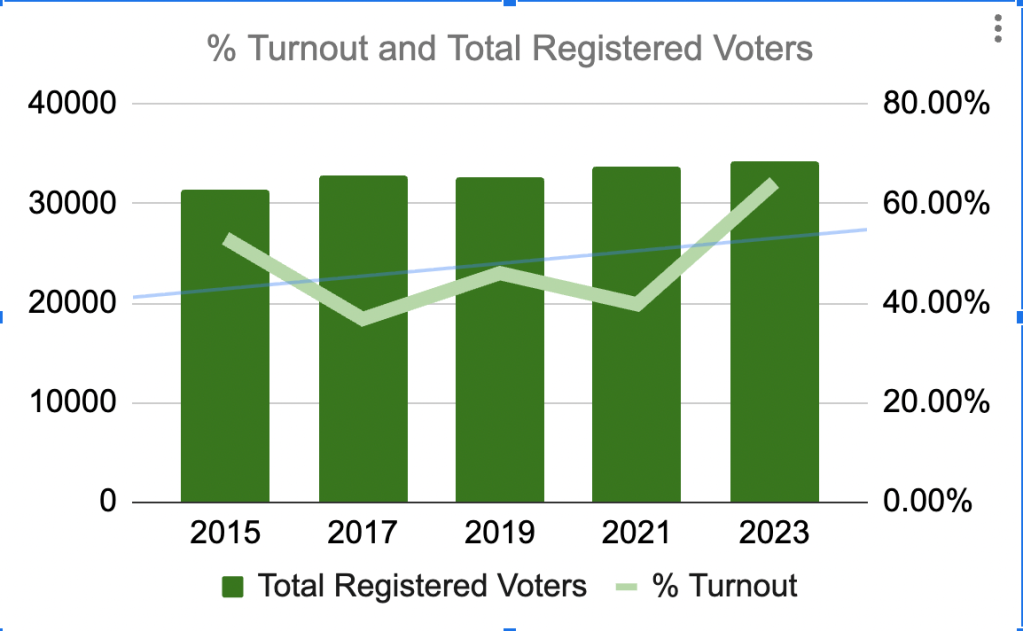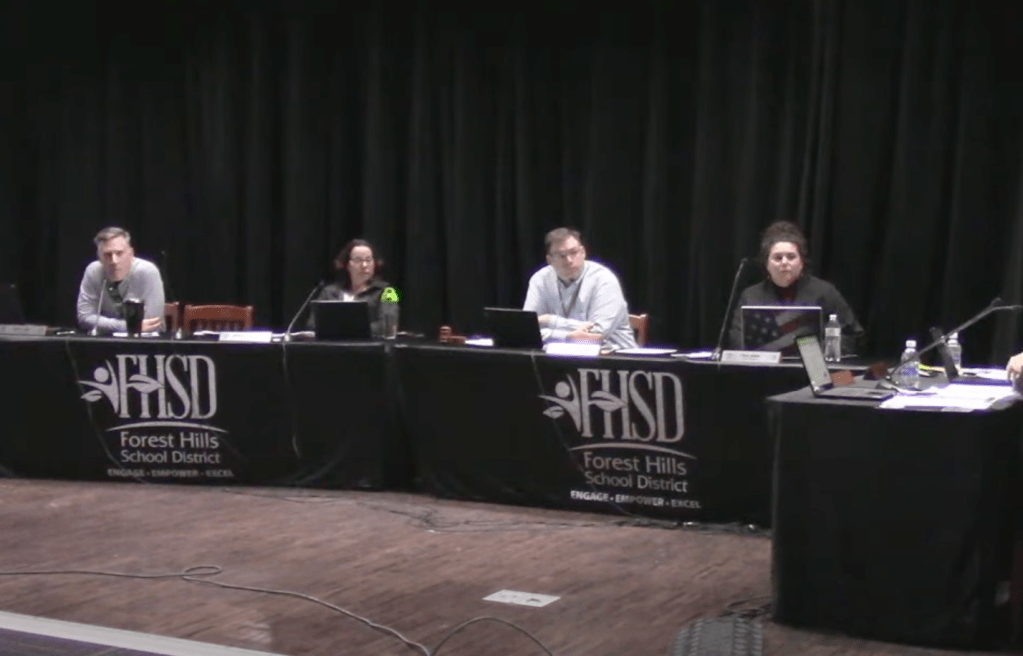-
At the February board meeting at Mercer Elementary, the board adjourned to Executive Session and returned to the public portion following a jaunty and celebratory beginning to this month’s meeting. Agenda item 7 indicated they’d exit to discuss the Employment of a public official, and when they returned, Larry Hook read a prepared statement announcing…
-
Since 1982, the US Supreme Court case “Plyler vs Doe” found that denying undocumented children access to public K-12 education violates the Equal Protection Clause of our Constitution. That ruling means all students– regardless of their immigration status– have been guaranteed the right to enroll in public schools in the United States. Additional federal requirements…
-
2026 has already seen significant change, and the year is only a few weeks underway. One early example is the board turnover in January, which shows signs of transition and a more positive new direction. The newly elected board members were sworn in at the start of the meeting. Unlike the 2021 board turnover, new…
-
December 18, 2025 At the final school board meeting of 2025, the board members had a passionate discussion about the extension of Larry Hook’s contract for one year. Amendment available here The board met several times over the past week in special meetings, scrambling to coordinate the evaluation for Hook’s performance and the contract draft,…
-
As we come into the 2025 campaign cycle we’re revisiting our goals and objectives for this space. Our approach and our intent is to focus on reaching community members that share our pro-public school vision. We hope to increase awareness of the issues facing public schools, especially Forest Hills. A coalition of residents that support…
-

The 2025 election slate for Forest Hills School Board has been announced. This year there are three open seats and six candidates running. Voter turnout is critical – and often influenced by issues on the ballot and challenges facing the local district as well. Taking a look at voter turnout for the last 10 years,…
-

On April 16, the Forest Hills School District Board of Education met to elect Dr. Wendy Strickler-Biederman as Vice President. Highlights included honoring graduates and state champions, discussing funding challenges from the state, and addressing public concerns about district policies. Overall, the board emphasized community engagement and financial stability.
-

AdvocateFHSD highlights three years of efforts to raise awareness about issues in their district, encouraging community engagement to improve school board outcomes. With recent challenges, including cuts to education funding and the actions of Republican-backed members, they stress the need for community voices at an upcoming board meeting to emphasize equitable education access.
-

The discussion from the FHSD School Board meeting revealed tensions surrounding EdChoice vouchers, highlighting the challenges faced by students, particularly those with special needs. A family’s experience emphasized the inadequacies of private schooling versus supportive public education. Future articles will delve into the impacts of vouchers, legal differences, and public school advocacy.
-

The content discusses the critical role of education in upcoming elections, highlighting both Democratic and Republican platforms. Democrats advocate for universal pre-K and increased investments in broadband and STEAM education. Conversely, Republicans push for universal school choice while aiming to eliminate the Department of Education. Voters are urged to stay informed ahead of the November…
Advocate Blog
Welcome to the Advocate FHSD blog! Strong public schools mean strong communities. We strive to engage and inform the FHSD community, and empower residents to be the best advocates for our schools, students, teachers and administrators.
Subscribe
Archive
- February 2026
- January 2026
- December 2025
- August 2025
- April 2025
- February 2025
- September 2024
- August 2024
- March 2024
- February 2024
- January 2024
- December 2023
- November 2023
- October 2023
- September 2023
- August 2023
- February 2023
- November 2022
- October 2022
Categories
- Consolidation
- Diversity
- Elections
- Levy
- Opinion
- Private Vouchers
- Resolutions and Policy
- School Board
- School District
- Superintendent
- Teachers
- Treasurer
- Uncategorized
Tags
AdvocateFHSD Alana Cropper Awareness Biden Bob Bibb community Community Engagement Consolidation Culture of Kindness Resolution Democrat Diversity Diversity Mural Ed Choice education Election 2024 Elections Extremism FHSD Forest Hills School District history Katie Stewart Ken Kuhn Larry Hook Levy Linda Hausfeld Nagel Middle School news Opinion parenting Patty Taylor politics Private School Vouchers Republican Sara Jonas School Board School Levy schools Trump vouchers Wendy Strickler
